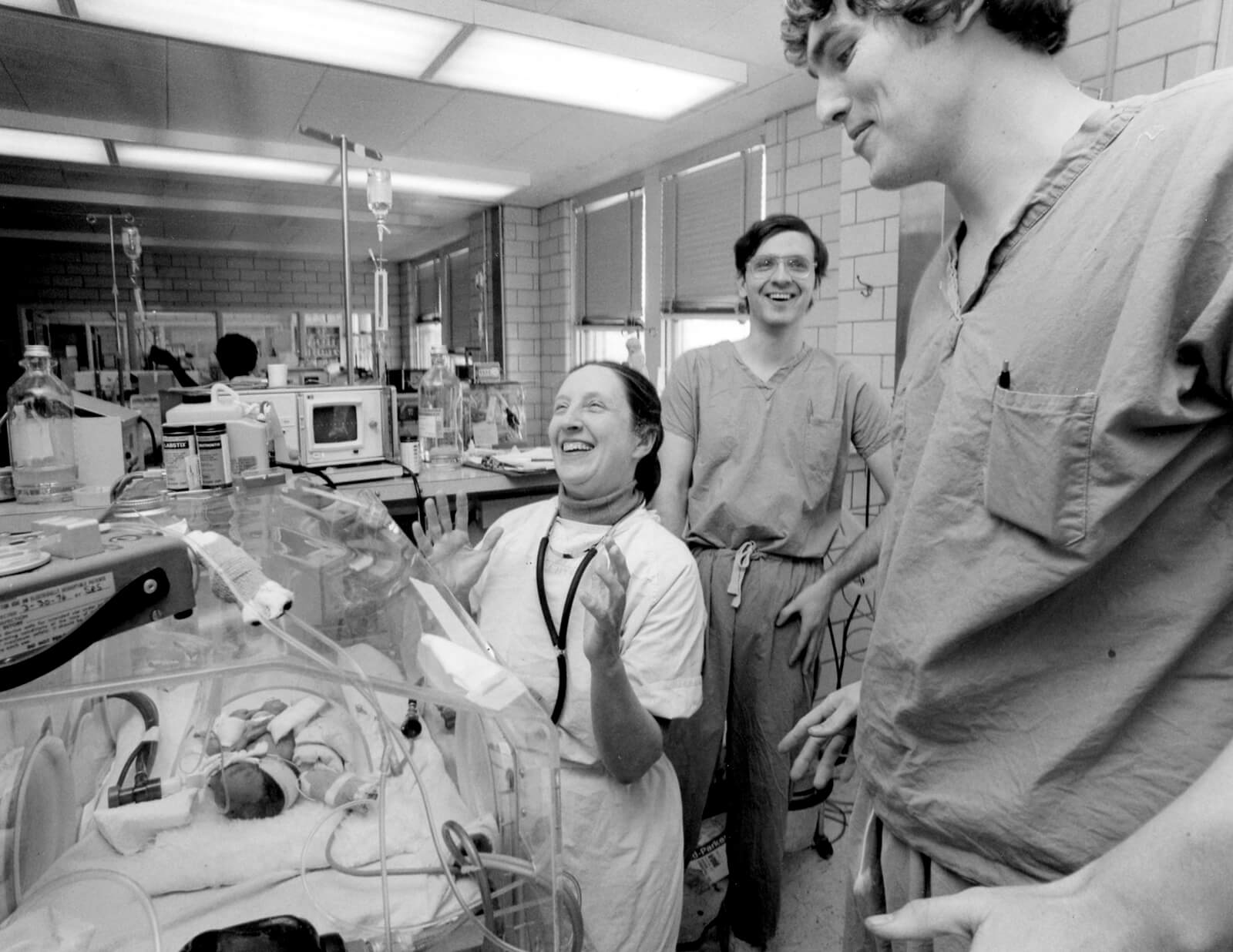In October 1961, a baby was born at Vanderbilt University Medical Center with severe hyaline membrane disease, or respiratory distress syndrome. There was no such thing as neonatal intensive care at the time, and babies born prematurely with underdeveloped lungs did not survive. But Mildred Stahlman, BA’44, MD’46, a VUMC physician and professor in the Vanderbilt School of Medicine, proposed a bold approach.
At the time, Stahlman was leading a project funded by the National Institutes of Health to determine what physiological changes occur in babies as they develop from intrauterine life to the world outside the womb. Through the NIH grant, a laboratory had been added adjacent to the VUMC nursery, and Stahlman had obtained a prototype of a respirator that was the same type used for polio patients but scaled down for premature babies.
This ongoing research project came face to face with life-or-death human need that October. Stahlman used the prototype respirator to help the newborn breathe and monitored her vital signs using modified equipment. After four days and nights, the baby was weaned from support. For the first time in the history of medicine, a premature baby who would not have survived was saved by the use of a respirator—and by the ingenuity of her doctors.
This medical breakthrough marked the beginning at VUMC of the world’s first modern NICU, an innovation that has changed the lives of countless premature babies and their parents.
Stahlman went on to play an important role in expanding care for high-risk infants throughout the region. She started Vanderbilt’s Neonatology Fellowship Training Program and as director of the Vanderbilt NICU helped train postdoctoral fellows from countries around the world.
When Stahlman was about 11 years old, she was given a microscope and soon determined she would be a doctor when she grew up. She tenaciously followed that dream during a time when women rarely pursued medicine or science, matriculating as one of only four women in her class of 50 at Vanderbilt School of Medicine. During her long career, she applied her natural curiosity to rigorous scientific research and patient-centered care. Now nearing the age of 101, Stahlman continues at Vanderbilt as a professor of pediatrics and pathology.
Martha Lott, that first baby saved in Vanderbilt’s NICU under Stahlman’s groundbreaking care in 1961, grew up to become a nurse at the VUMC NICU where she began life. “The thing I really enjoy about NICU work,” Lott said, “is there’s meaning in every day,” a sentiment that Stahlman certainly shares.
Learn more about Dr. Mildred Stahlman’s pioneering research.
